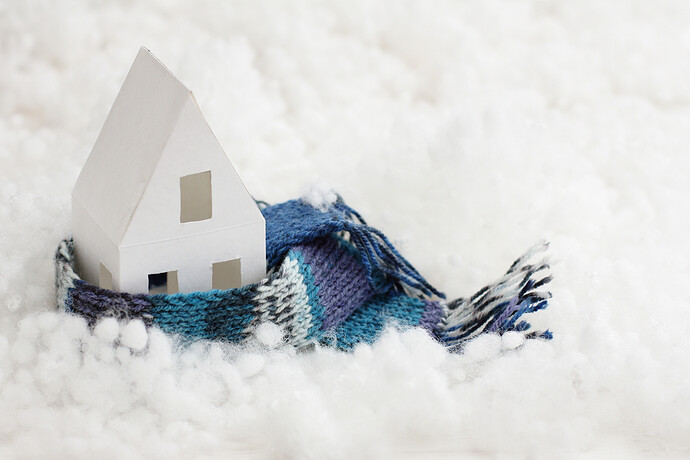As the weather turns colder, your property can face it’s own challenges. As a landlord, there are a few things you can do to stay on top of these, and encourage your tenants to notify you of any changes that may cause problems.
1. Check your pipes
With the freezing weather comes potential problems with your pipes. Ensuring there are no leaks and everything is connected and in good shape, you should be off to a good start. Seal any cracks and ensure pipes are well-insulated to help make sure they don’t burst in the cold weather.
Empty properties, whether they are unoccupied or just from where tenants are away for a period, can cause some issues in itself. Asking your tenants to leave the heating on low or on a timer can help reduce the risk (and problems) of freezing.
2. Make sure the heating is in working order
Any gas systems in the property should be checked on an annual basis by a Gas Safe engineer (it’s a legal requirement), so hopefully the problems should be minimum in this area. Nevertheless, it’s a good idea to have the boiler fully services and any issues identified and resolved to reduce the chances of problems, especially at this time of the year.
Simple problems may be fixable yourself. For example, if radiators aren’t getting very hot it may be that the system needs bleeding. If you’re unsure, sites such as WikiHow has a guide on how to bleed a radiator, which may help.
3. Check the condition of the roof
From broken tiles to a damaged chimney - winter can cause a bit of an issue if they’re not attended to. Cracks can be made worse with freezing temperatures and heavy rain, and the weight of snow or force of wind can cause further damage. As the saying goes, prevention is better than cure.
If you’re unsure what to be looking for, contact a roofer who should be able to take a look for you.
4. Ensure your property is well insulated
Insulation is more than just insulation in your walls. Think along the lines of draft excluders, double glazing and even curtains, to help reduce it further. Even with a good heating system, if the insulation is poor, it’s not going to be that effective. This has the potential to improve your energy efficiency rating too.
Privately rented properties need to be at least an energy rating of E. This was made a legal requirement as of April 2018, so make sure your property is up to standards.
5. Check that the gutters are clear
Give the guttering the once over, checking for broken or missing pieces, a build up of leaves from the autumn or any other issues.
Problems with the guttering can lead to water not draining away properly, which could turn into bigger problems.
6. Communicate with your tenants
Lastly, communication is key. Your tenants are the ones who live in the property and will likely notice issues earlier than you will. Maintain a good relationship with regular communication and stay on top of issues.
But remember, it works both ways. If the weather is expected to turn worse, check in on your tenants to see if they’re aware and prepared. Check if there are any problems which could worsen with the weather. And don’t forget to plan ahead - you probably want a break over the Christmas period, and likewise, your tenants are likely to not want to be disturbed during this time either.
Do you have any tips you want to share? Let us know below.
